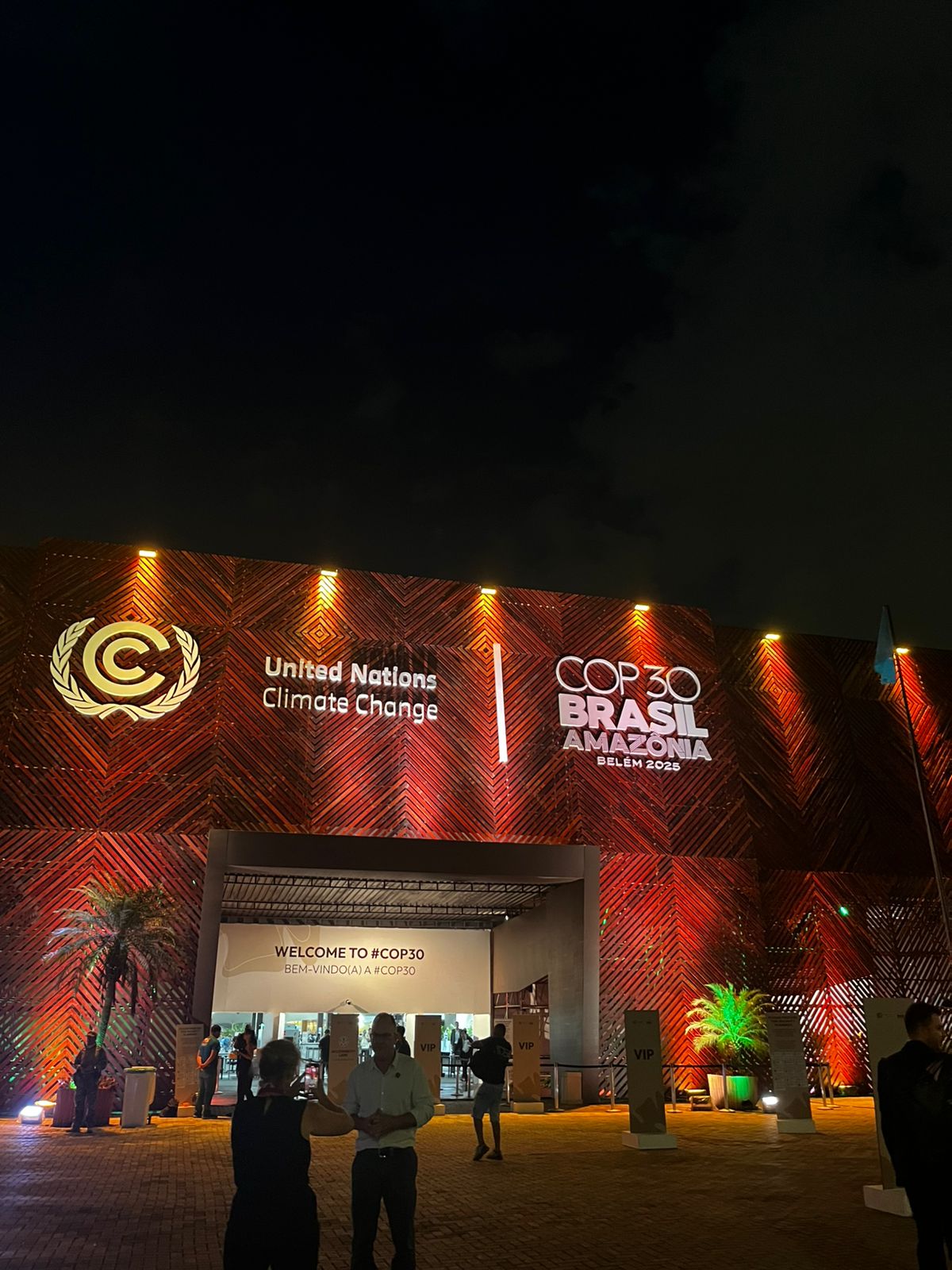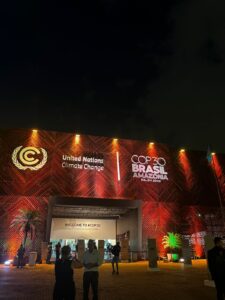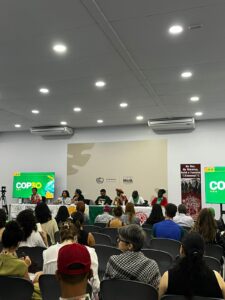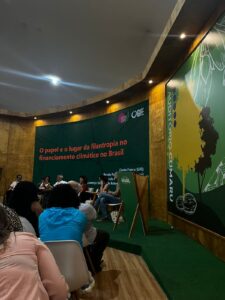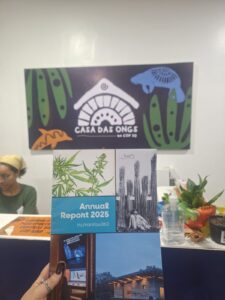The Humanitas360 Institute participated in the 30th United Nations Climate Change Conference, which concluded on November 22 in Belém, with a clear mission: to demonstrate that climate justice and social justice are inseparable. Operating simultaneously in the Blue Zone (where official negotiations take place), Green Zone (open to civil society), and Yellow Zone (parallel spaces organized by civil society institutions) of COP30, we brought our Letter of Proposals and its four priority pillars: drug policy and climate justice, the potential of Hemp as an environmental and economic solution, social cooperatives in the inclusive green economy, and philanthropy for climate financing.
Representing the ecosystem of PDR Philanthropic Fund – which supports, in addition to H360, the Ficus Institute, CIVI-CO, Tereza, and Scirama Psychedelic Science – we highlighted initiatives such as the Potable Water Coalition for Indigenous Peoples and advocated that historically marginalized populations – from urban peripheries to traditional territories – be recognized as holders of essential knowledge to address the climate emergency.
Below are the accounts from the Humanitas360 Institute representatives at the Amazon COP.
Larissa Itri, legal consultant:
“I spent five days at COP, immersed in the Blue Zone, where formal negotiations coexisted with the vibrant force of civil society and the largest Indigenous presence in the history of the Framework Conventions. In the corridors and official forums, there was a clear certainty that climate governance cannot exist without real democracy: without dialogue, without listening, and without the direct participation of those who bear the impact in their bodies and territories.
Discussions on public security laid bare what the Humanitas360 Institute has long denounced: environmental crime, from illegal trafficking routes to illegal mining operations that mutilate the Amazon, is a structural part of the climate crisis. This is the world’s third-largest illicit economy, and confronting it requires more than repression; it demands understanding its roots and acting with intelligence, justice, and courage.
COP30 presented numerous initiatives and proposals, but none will have legitimacy if they ignore Indigenous knowledge and the voices of those most affected. Climate financing is urgent and must reach the grassroots. This is the commitment that runs through the work of Humanitas360: ensuring that decisions about the planet’s future arise from those who sustain life in their territories.”
Larissa Cordeiro, projects analyst:
“Civil society’s role at this COP was unavoidable, and the Humanitas360 Institute was also present in the Green Zone and various parallel spaces throughout Belém. As a representative, I was able to follow and want to highlight the People’s Summit, which since 1992 has been consolidated as a space of unity in diversity, where the sharing of agendas, demands, and solutions among traditional peoples and communities, peripheries, and social movements reaffirms that the debate on the climate crisis will not advance without environmental justice.
My participation in Axis II (‘Historical reparation, fighting environmental racism and false solutions’) of the People’s Summit, at the COP Central table on the impacts of the crisis with Jurema Werneck – at the launch of the book ‘Peripheries in the Fight Against Environmental Racism’ by Perifa Connection, the Dhesca Platform report on human rights violations, and the reading of the Climate Peripheries Letter by the Peripheral Front for Rights – highlighted a growing consensus: the solutions lie in the territories!
From quilombola Cerrado communities to Amazonian favelas, from urban peripheries to Indigenous peoples in their villages, those most impacted by climate and environmental collapse, by armed violence and the war on drugs, are also those who present the most real solutions. In light of recent tensions in international politics, holding COP30 in Brazil, especially in Belém do Pará, sends a message to the globe: the Global South will continue defending democracy and the sovereignty of its nations and peoples in the face of the historic struggle for the right to good living.”

